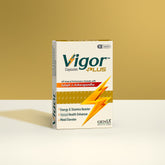Infertility in Male: Reasons and Treatment
Infertility, defined as the inability to conceive, may arise from various factors affecting male. Conducting a thorough fertility assessment of the effected individual can identify the underlying causes, allowing the fertility specialist to formulate a tailored treatment strategy.
Male infertility can occur from various factors:
Issues with sperm production: The proper development and functioning of the male reproductive system are crucial for normal sperm production. Any disruption in this process can lead to infertility.
Sperm motility issues: Abnormal motility of sperm can prevent them from reaching the egg.
Problems with sperm transport: Blockages in the ducts that transport sperm may occur due to surgical procedures, congenital anomalies, or infections.
Ejaculation difficulties: Several health issues, including diabetes, bladder surgeries, and certain medications, can interfere with ejaculation.
Infections: Conditions such as sexually transmitted infections can impair both sperm production and motility.
Genetic abnormalities: Disorders like cystic fibrosis and Klinefelter’s Syndrome can disrupt sperm production and transport.
Cancer: Cancer and its treatments, such as chemotherapy and radiation, can negatively impact fertility by affecting libido and sperm quality.
Varicocele: An abnormal enlargement of veins in the scrotum, known as varicocele, can result in decreased sperm production and motility.
Undescended testicles: In some males, the testicles do not descend before birth, which can lead to infertility.
Antisperm antibodies: Some immune cells may mistakenly target sperm as harmful entities.
Obesity: Excess weight can disrupt hormonal balance and negatively influence fertility.
Chemical exposure: Contact with pesticides, toxins, and excessive heat can contribute to a lower sperm count.
Smoking: Men who smoke often experience reduced sperm count, motility, and overall sperm quality.
Indicators of Male Infertility:
Often asymptomatic
Alterations in libid
Reduced testicular size
Discomfort or swelling in the testicles.
Assessment of Male Infertility:
The following tests may be conducted to evaluate male infertility:
Physical Examination, Semen Analysis, Scrotal and Transrectal Ultrasound, Hormonal Assessments, Genetic Testing.
Management of Male Infertility: Medical interventions for conditions such as hypogonadotropic hypogonadism, diminished sperm count, and motility may include hormone therapy, antioxidants, etc. Advanced reproductive techniques such as IUI and IVF/ICSI are available to assist men in overcoming infertility and achieving parenthood. Sperm retrieval methods, including TESA, Micro-TESE, and sperm separation techniques like MACS and Microfluidics, can enhance fertility.
Types of Infertility: Primary Infertility refers to the inability of a couple to conceive after one year of attempting, while Secondary Infertility is defined as the inability to conceive again after previously achieving a pregnancy. As fertility tends to decline with age, it is crucial for both male and female partners to undergo fertility evaluations, as early diagnosis and intervention can facilitate the couple's journey towards parenthood. Individuals planning to conceive should adhere to a nutritious diet, engage in regular physical activity, refrain from smoking and alcohol consumption, and maintain a consistent sleep schedule to improve their chances of conception.
Treatment of Male Infertility:
Medical interventions for conditions such as hypogonadotropic hypogonadism, diminished sperm count, and motility may include hormone therapy, antioxidants, and other treatments. Advanced reproductive techniques such as IUI and IVF/ICSI are available to assist men in overcoming infertility and achieving fatherhood. Sperm retrieval methods, including TESA and Micro-TESE, along with sperm separation techniques like MACS and Microfluidics, can enhance fertility outcomes.
Use of Supplements:
Various supplements are thought to enhance male fertility by promoting sperm health, such as vitamin C, vitamin E, vitamin D, selenium, zinc, Coenzyme Q10, L-carnitine, and D-aspartic acid. These supplements may increase sperm count, motility, and morphology, as well as improve the overall quality of semen.






